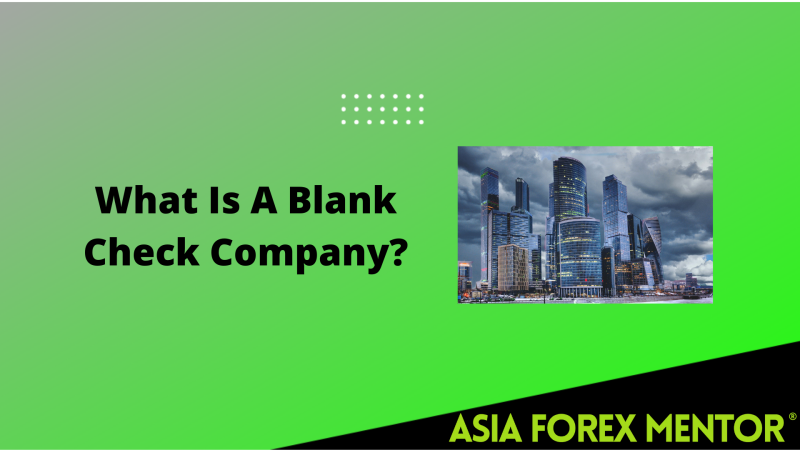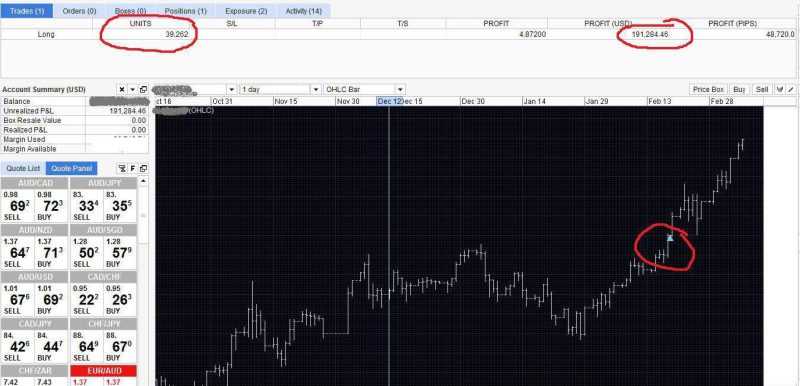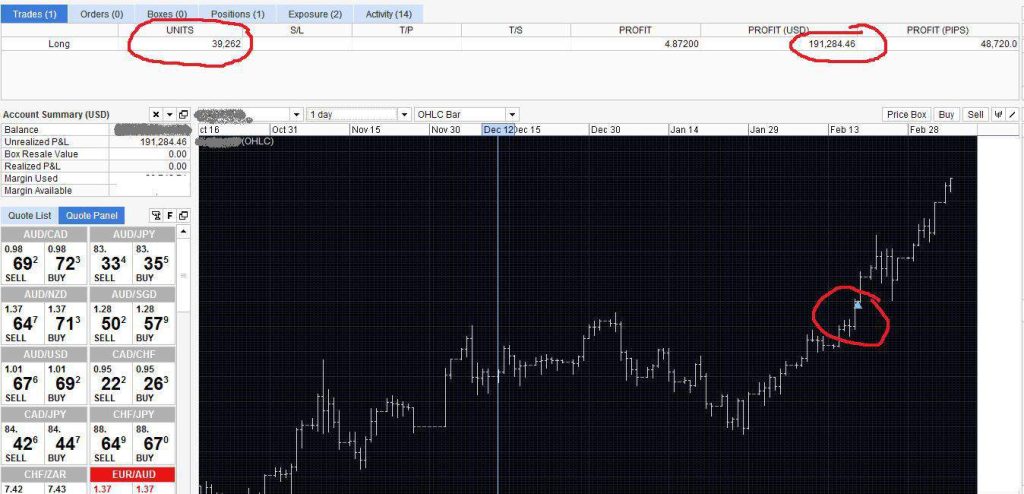
When you turn on the news, you will hear about a company going public. Usually, this means that a private company has gone public, and traders like you can now invest in it. But these kinds of stocks are heavily regulated. There are processes after processes.
What if there was something that could turn companies into public without rigorous procedures? Well, there is. The companies that do this are called blank check companies.

Also Read: What Are Inspire Brand Stocks?
Contents
- How Does A Blank Check Company Work?
- Difference Between Initial Public Offering and Special Purpose Acquisition Company
- Benefits of SPACs
- How to Invest in Blank Check Companies?
- Risks of SPACs
- Handling the Responsibilities: Securities and Exchange Commission
- The Current State of Blank Check Companies
- Final Thoughts
- FAQs
How Does A Blank Check Company Work?
Now that we know what a blank check company is, let's find out how it works. Generally, a private company becomes a private company through IPO (initial public offering). This transition means that the private shareholders don't own the company anymore. Now, it has become public and can trade in the market. You can even hold a portion of the shares of the company.
However, IPOs are not the only way to go public. There is a much less regulated process to go public for a company. Many companies nowadays are going public by a process called the SPAC (Special Purpose Acquisition Company).
These SPAC or blank check companies don't have any operations of their own. They will collect money from their investors to keep the company functional. Now the sole objective of these companies is to raise funds and acquire a new company in the future. They tend to purchase high-risk companies that don't want to go through the IPO process.
These companies will find a company very quickly and take it to market. To do this, they will merge with the company. When the company merges with the SPAC, they will find a spot in the exchanges, and traders will invest in them. The traders who own the shares of the blank check company will now hold a piece of the new entity.
Now you might be wondering why you would invest in something that doesn't have any function or operation on earth? Well, that's why they are called blank check companies. You have to take a leap of faith.
When you invest in these companies, there is a good chance they acquire a profitable company in the future. When they do, you can be a shareholder of the company. Therefore, your share price will boost enormously.
Difference Between Initial Public Offering and Special Purpose Acquisition Company
IPO's are more reserved compared to SPAC's. The leading investors of these companies are big fish in the market- venture capitalists, large investors, and people with lots of money.

As there is a considerable amount of money involved, the IPO's have to meet the requirements of the Security exchange commission. These companies are heavily regulated. There are many rules, including S1 filing, which detail the financials and private business plans.
But it doesn't end there. Most of the time, there would be an investment bank involved. These banks perform various tasks such as setting the IPO price along with gauge market interests.
If all this technical jargon eludes you and you are thinking of choosing an easier path, then SPAC is perfect for you. These companies are usually created by high-profile individuals or hedge funds hoping that you will invest in them.

They often have enough credentials to convince people that it's a profitable thing to do. People invest in them and, using that capital, and acquire other companies.
Usually, it takes these blank check companies to go public in about months to years. People hope that the blank check companies will buy a good company, and their shares will rise. Special purpose acquisition companies are generating tons of investor interest. Most believe that investing in SPAC's is a good choice, and they will make a huge profit.
Benefits of SPACs
There has been an extensive debate going on regarding private companies becoming public through SPAC. Some people think that there is a huge risk involved, while others openly promote them.
One thing is for sure- SPACs are becoming increasingly popular over the years, and for good reasons. So, let's check out the benefits of SPAC.
Promoting Early
With a SPAC, a company can promote itself quite early in the process. It's not possible in IPOs as they are incredibly regulated.
In SPAC, the shareholders can talk about the development of the publicly traded company. They can come up with new strategies to attract investors. Therefore, when it's fully functional, they already caught the eye of the major investors. With the shareholder approval, the company will operate much better.
Faster and Cheaper Process
It's the era of entrepreneurs. Everyone is coming up with brilliant ideas that can revolutionize an industry. But these startups often die at a very early stage. IPO is an expensive process.
Furthermore, it's an exhausting process. It takes an eternity to get the job done. By the time you meet the requirements of the IPO, all your investors have walked out of the door.
For startups, SPACs are a lifesaver. Your company can go public at a much cheaper rate. Most importantly, you won't have to go through a rigorous process.
It's also creating more opportunities. Entrepreneurs are willing to take risks. For investors, there is a much bigger market. So, it's a win for both parties.
Certainty of Execution
In SPAC, you know earlier in the process that you will get the deal done. But the same doesn't happen for IPO. IPOs get derailed most of the time at the last minute because the markets are volatile.
On the other hand, companies that go public through SPAC know that they will get large valuations.
Increasing Ground Floor access
Think for a second. Unless you are a wealthy investor, you won't be able to buy shares at an initial offering price. Most IPOs are like that. But you can invest in the initial offering price using a premerger SPAC.
How to Invest in Blank Check Companies?
While SPACs do sound like something fancy, they are just average public stocks. These stocks are listed on S&P 500, which you can trade in different exchanges like any other blue-chip.

The only difference is that other companies have an objective and a business plan. There are operations involved in them. But, blank check companies have no operations involved.
Risks of SPACs
The Collapse of the Deal
When the SPAC and the company agree to go on a deal, many instructions involve it. Exclusive negotiations are made between the two parties. Therefore, there is no confusion.
But still, many times, the blank check company doesn't correctly acquire the operating company.
The deals never reach the finish line for various financial transactions. Sometimes, there is a change of heart among the shareholders, which alters the approval. Environmental factors may also play prominent roles that contribute to this.
Long Timelines
The most common reason why companies look to go public through SPACs is that it takes less time. Compared to IPO's, there aren't many regulations. But still, the merged company has to fulfill the Securities and Exchange Commission filing requirements.
Along with this, they have to comply with the financial statements. It takes a lot of time and calculating the entire process equivalents closely to the IPO time.
Handling the Responsibilities: Securities and Exchange Commission
It sounds good when your company goes public. You can see your name on the different exchanges. It's one of the brightest days for any company. But being a public company isn't easy. There lie tons of responsibilities. If a company fails to maintain this responsibility, it can backfire.
Most private companies are not experienced enough to be in the public registry. The shareholders think that it is an excellent strategy to go public as it will increase its growth. But the company has to go through a lot of processes and controls to remain public.
That's why The SPAC that will merge with the company has to meet some criteria. It has to produce accurate financial information such as tax provisions. Only then will it work.
The Current State of Blank Check Companies
In recent times, the tendency of companies to go public through SPAC has been increasing rapidly. In 2020, the biggest SPAC deal occurred. It pretty much shook the financial ground. The United wholesale mortgage went public through the biggest SPAC deal. The valuation of the company was an astounding 16 billion dollars.
Back in the 1980s, blank check companies were known as empty pools. There wasn't much credibility at that time, and the reputation was entirely tarnished. Many financial advisors would consider them associating with penny stock frauds. Many institutional investors would stay away from investing in these stocks, thinking of the immediate loss. They would even motivate others not to invest.
But a lot has changed since then. Because of new laws and regulations, blank check companies have gained notable credibility. It has also bolstered investors' confidence. Even major retail investors and blue-chip institutions are thinking of purchasing these stocks.
Goldman Sachs is one of the leading investment firms in the world right now. They have never used underwritten SPAC IPOs. A few years ago, they did their first SPAC IPOs. Many other companies are following their footprint.

Even the New York stock exchange holds many spots for SPACs, which has turned the tables for SPACs. As SPACs grow more and more, the size of the blank check companies will rise as well. Who knows what large companies will go public through them next?
Final Thoughts
The financial world has seen significant trends over the years. The SPAC or the blank check company is perhaps the most important trend of the modern era. Still, people are skeptical about it. Many veteran investors consider it to be a fraud.
But, more and more blank check companies are acquiring multi-million dollar companies and making them public. It's convincing everyone that it's an excellent way for companies to get public. Although it's controversial, this trend is not going anywhere any time soon.
Also Read: What Is Good Faith Violation?
FAQs
1. Is SPAC a good investment?
Although SPACs are getting a lot of attention in recent times, it's not that profitable to invest in them. Statistics show that many individual investors have lost money over the years. The SPAC's usually perform underwhelmingly in the market. Because of their poor track record, you should be wary. Research thoroughly before thinking of investing in them
2. Why are they called blank check companies?
Blank check companies are like shell companies that collect capital to acquire other companies in the future. Investors have no idea what they are dealing with. The companies don't have any significant motive or business plan other than raising capital. As the objective of the developmental stage company is blank, they are called blank check companies.
3. What is an Escrow Account?
Your mortgage servicer will deposit an amount in your account to cover your financials like taxes and homeowners loans in an escrow account.

















